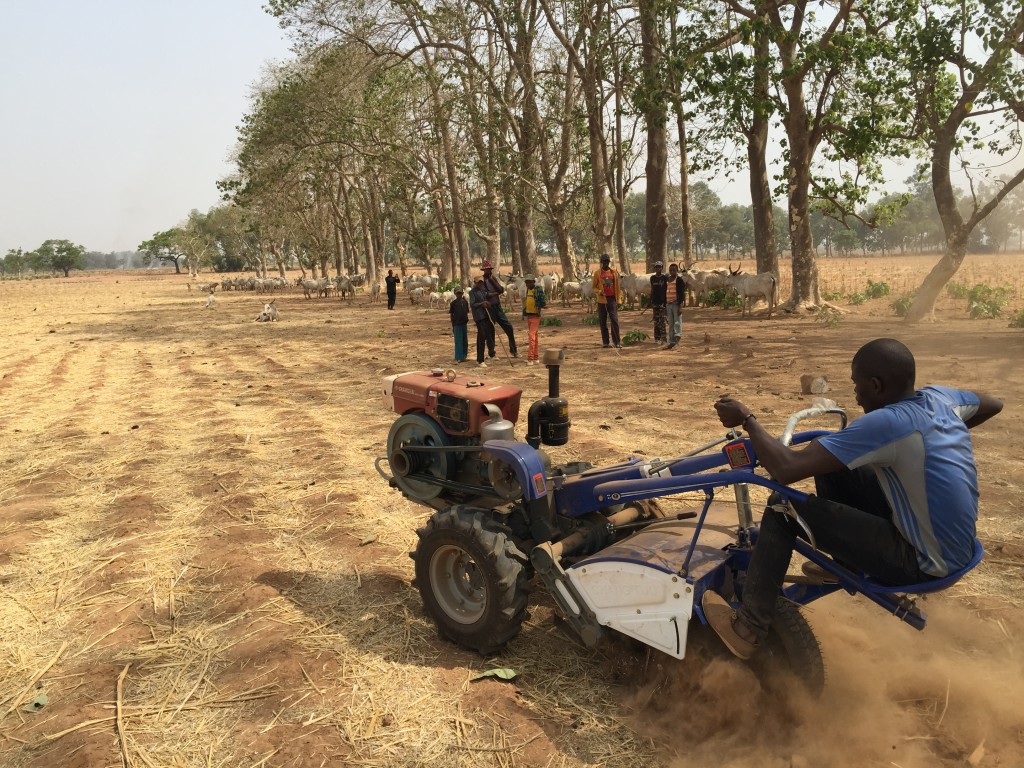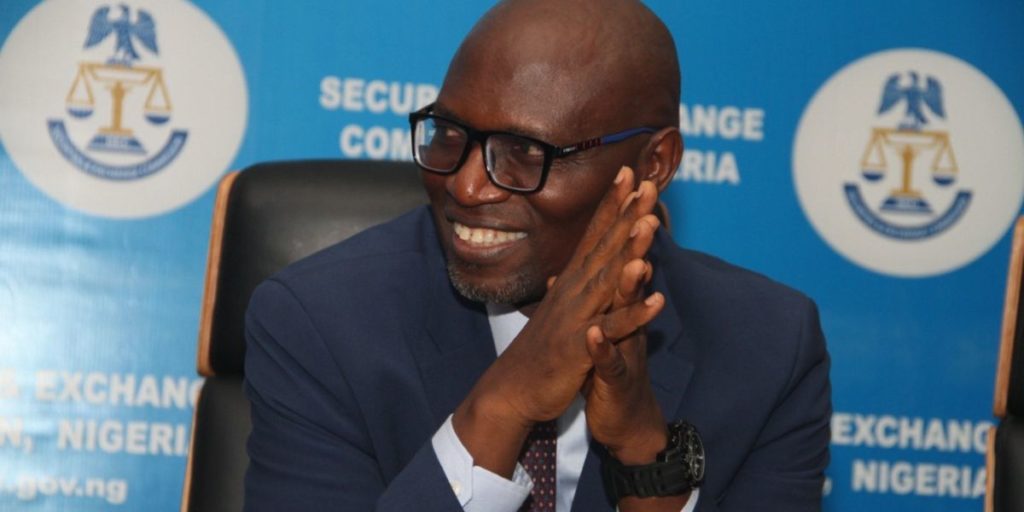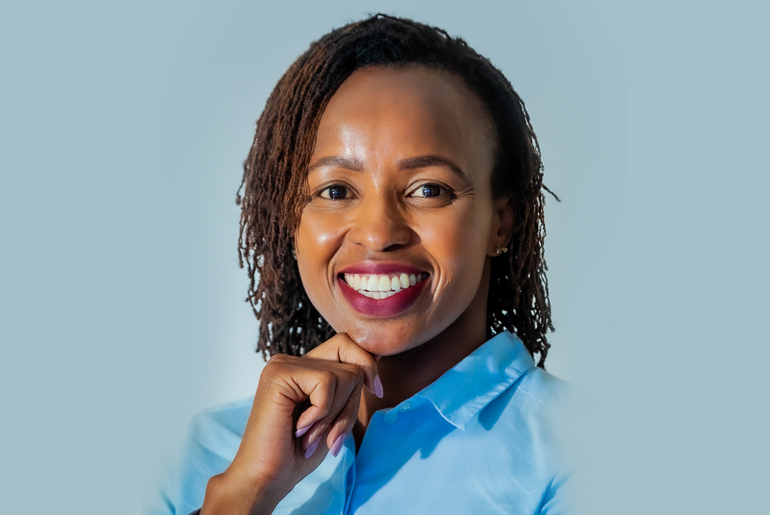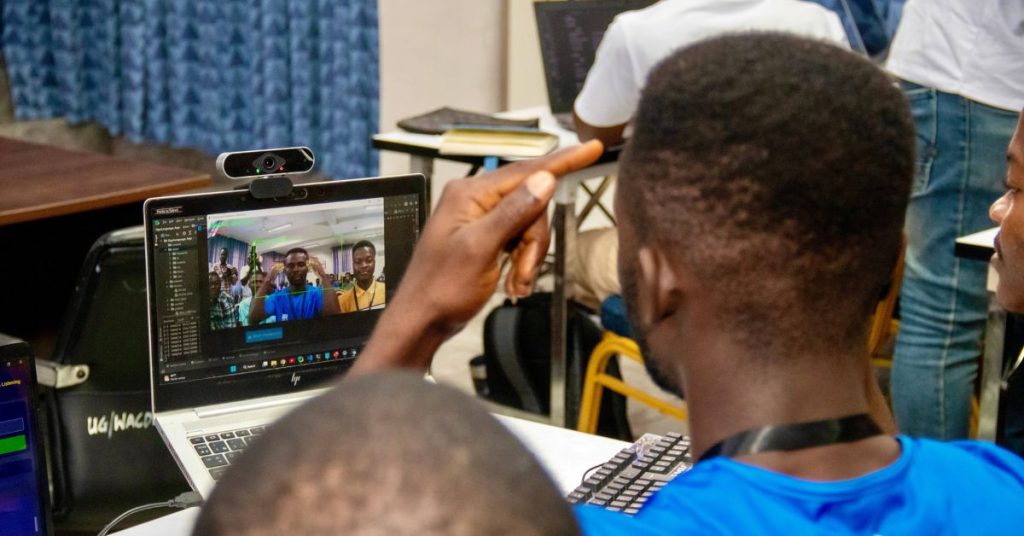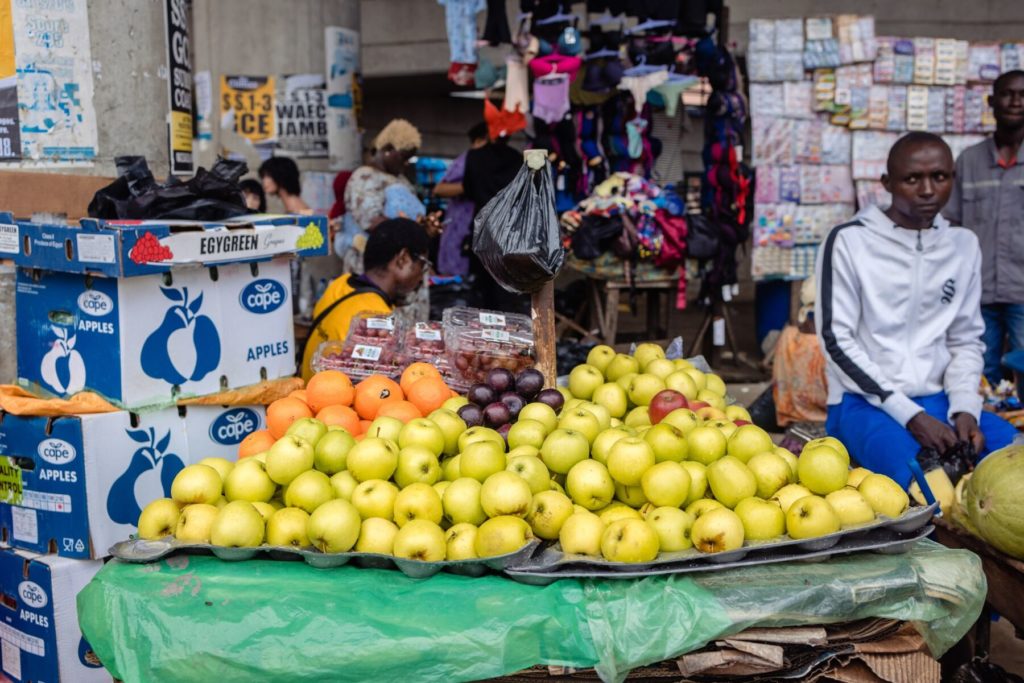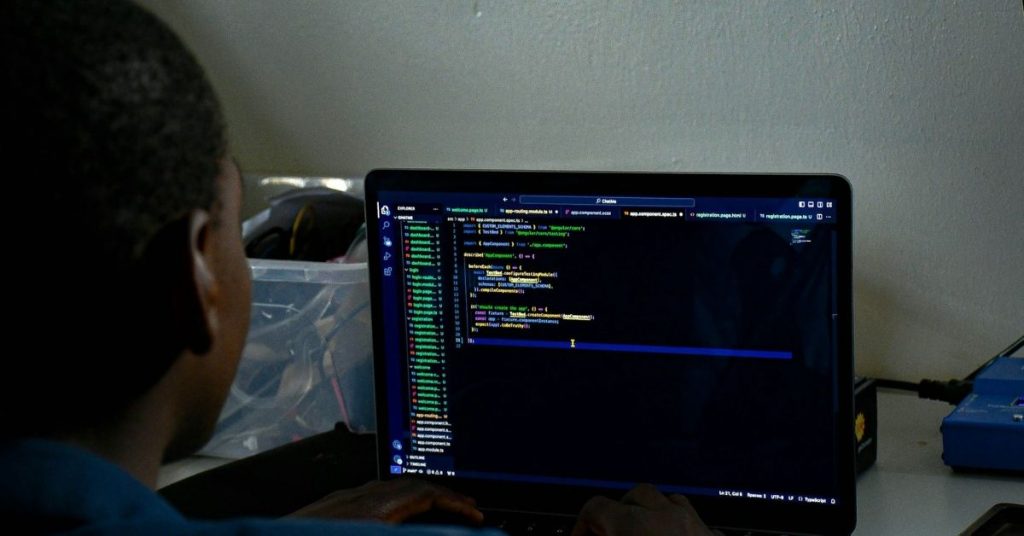Farming is fun.
Nah, I lie, it’s not. Not in Africa, it’s not. I have been on a farm here, and this I know for sure; FARMING. IS. HARD.
So when a startup surfaces introducing technology smarts into farming to make it suck less, it gets my attention.
Hello Tractor is a startup trying to do this. The startup is making tractors available to farmers, on-demand. If I was a farmer and can’t afford to buy a tractor, or maintain one – because doing both are insanely expensive – I send a coded service request to an SMS short code and, within minutes, get a tractor, or any other farming machinery I want.
That is only half of it though, another layer of the business are the kinds of tractors on Hello Tractor’s rotation; Smart tractors, Jehiel Oliver, Hello Tractor co-founder, calls them.
“What makes it smart is that it is retrofitted with a GPS antenna and it is also designed for data transmission within environments with little to no internet penetration,” he told me.
Jehiel Oliver was an investment banker before founding Hello Tractor. He brought on Van Jones as a co-founder months later. Both are citizens of the United States, but are also very passionate about farming in Nigeria and Africa.
Hello Tractor was one of the 11 startups that pitched at the Seedstars Lagos pitch event in where, MyQ, a startup from Abuja, Northern Nigeria won the top prize.
I caught up with Jehiel to talk about Hello Tractor. Our interview:
Gbenga: Great play at the Seedstars Lagos pitch, a little sad I couldn’t watch you guys pitch.
Jehiel: No worries. I was proud to see MyQ take home the top honors. They are a scrappy, hardworking bunch that definitely deserve to be recognized
Let’s jump right in. Who are you guys?
There’s five of us, plus our general council. Three of us are here in Nigeria; our general counsel and our head of farmer outreach are Nigerian. The rest are African American. We are looking to build our Nigerian staff up IMMEDIATELY!
I can see why that is important.
It is most important
But you and Van. Tell us about your background.
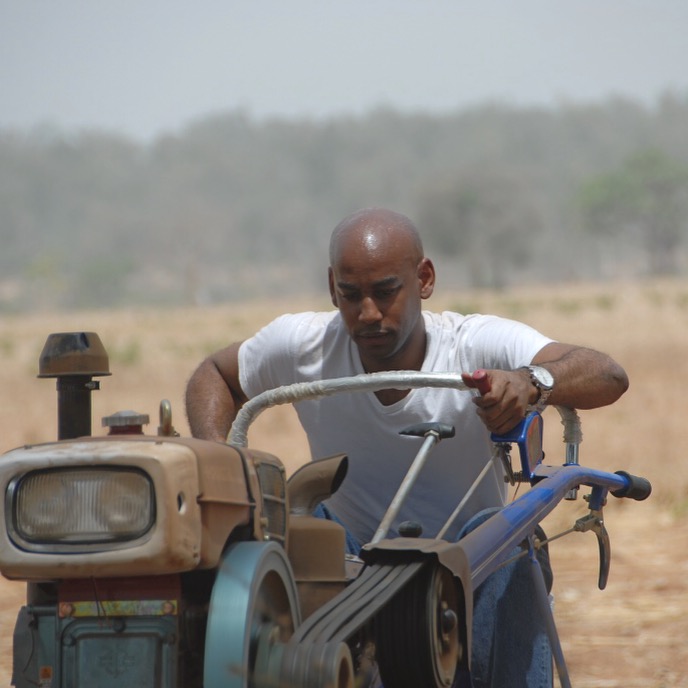
I am from Cleveland, Ohio. Grew up in a low-income community, but was surrounded by great people (family and friends) that supported me throughout my childhood. I went to Florida A&M University (an HBCU) and studied Economics and Business. I worked in investment banking and private equity after college for about five years then started consulting in financial sector development contracting with DFIs [Development Finance Institutions] and multilateral institutions, which is what exposed me to agriculture initially.
I went to grad school at Cornell and studied Economics. I continued consulting until I founded Hello Tractor while on a project at IRRI in the Philippines. This was 2013.
I brought Van on board in early 2014. He was still working on his MBA at Chicago Booth. He did the Chicago SNVC competition and helped us get first place. We had a great working relationship so I decided to bring him on, the rest is history.
I read about that – SNVC. Really good play you guys.
SNVC is probably the most competitive social VCish competition. It gave us a great platform to tell our story to business leaders from around the world. It’s a powerful platform.
Let’s talk about Hello Tractor. This is one of the things I imagine is part business, part campaign. Please explain it like to a 5 year old.
We developed a “smart tractor”. A low cost tractor that comes with attachments to help farmers throughout crop cycle – irrigation pump, plow, tiller, trailer (for transport of goods), ridger, etc.
What makes it smart is that it is retrofitted with a GPS antenna and it is also designed for data transmission within environments with little to no internet penetration. We use the data for all sorts of fun stuff. We pair the smart tractor owner with farmers texting for tractor services (e.g. #001 for till). We also provide value added analytics to agriculture industry stakeholders. We just hired a data specialist for this work.
Makes sense?
We are on our way there. Okay, a salvo of questions coming through; who pays for this? What kinds of data do you collect? Where do the data reside and what are these used for? Why are they important?
The smart tractor is purchased by farmers, we coordinate affordable financing to facilitate this, they repay the loan with the money made from providing the tractor services. The SaaS is free for the first year, this gives us an opportunity to prove the value to the smart tractor owner, maintenance on-site, the virtual booking platform, etc.
The key data points for us are farm location, plot size, crops grown and time of planting, we then cross this with data within the public domain (weather, soil quality, etc) to build farmer profiles. These profiles are attractive to a variety of stakeholders including input manufacturers, food processors, etc.
This clears up a few things. I still have a few questions here, but I’ll get to those later.
Okay.
Your beta. So there were talks of your pilot roll out in Nigeria last year, but the news on that sorta pattered off. And then another report had it that Hello Tractor was already in Ghana. Please help clear that timeline mixup. Did the beta happen or there was a change in direction?
The beta happened, we are now into our first sales cycle for Nigeria with approximately $6.5 million in the pipeline. Our first order to come online is with Notore Chemicals, who has ordered 300 units. We are in beta in Ghana right now.
That makes sense. Why did you start out in Nigeria?
First of all, the market here is huge; the largest untapped mechanization market in the world. Secondly, Nigeria is a dope country with amazing people. The energy here is electrifying.
Entrepreneurship is alive and well, and this is something we want to key into.
Nice. Do you have data here, for the bit about Nigeria being the largest untapped mechanization market?
Tons of data; Nigeria ranks 132 out of the 188 countries surveyed on global mechanization rates. There are approximately 6.5 tractors per 100 square kilometers of arable land in Nigeria, the global average is around 200. The US is at about 250.
FMARD estimates Nigeria needs 750,000 additional “large horsepower tractors” to get to global standards. I can keep going, it’s a BIG issue.
The Nigerian government puts a lot into Agriculture. At least they claim they do. Do you work with the government? How is that relationship?
We currently work with state governments and are looking to expand our work to the federal government once the agriculture minister is confirmed.
Government is critical in all agricultural markets, farming would not be where it is in the US without the government involvement The US farm bill is one of the largest pieces of legislation. Same for all major agricultural markets globally. Nigeria is actually far behind when it comes to government investment in agriculture. I suspect President Buhari will change this.
What challenges are there in working with the government?
The pace is different. Also, there are many layers of bureaucracy. Motivations can be different as well. At times, politicians confuse themselves with business people, which complicates things.
How many states are you in currently and which ones are in your expansion plans?
We have seven states in our crosshairs at the moment.
If I was a farmer and needed to get one of these smart tractors, how do I get it? Like a step-by-step guide.
Farmers simply text for tractor services (i.e., #001 for till). The nearest smart tractor owner is provided that request along with the farmers phone number and requested service. The smart tractor owner drives the tractor to the farmer’s field, provides the service and is paid upon completion. The service is priced at one-third the cost of manual labor and is 40 times faster.
What is the going rate for smart tractor services?
The tractor service is determined by the market. We don’t interfere with that because tractor service is hyper-geographic, ever-changing, and impossible to predict.
How does Hello Tractor make money?
We sell smart tractors and then we sell our software platform that provides the SMS booking, maintenance scheduling, etc. Lastly we are building out our data platform. We just hired an agricultural economist to lead this effort
You are looking to monetize that platform as well?
It’s going to be our biggest revenue stream once we hit critical mass.
I am wondering where all these link up; you have the private owners who rent out tractors, individual farmer-owners, and then the government. Why do you need the government still?
The state buys tractors and subsidizes for individuals. It’s a bit complicated honestly. They work through cooperatives. In some instances, state government will have tractor hiring services as well but this is less common.
That clears up a few things. Which leads me nicely on to other challenges to your operations asides the government bureaucracy?
Financing. Banks are expensive here, so for our buyers that require financing, we have to do a lot of work to structure appropriate loans on their behalf. We are in the midst of this work now. We are also bringing money from abroad to provide buyer financing directly. This is by far the greatest challenge for us at the moment.
What has been your biggest surprise in and about Nigeria?
It’s just an incredibly complex country. Unfortunately, the narrative of the country is defined by a small group of bad Apples but the overwhelming majority of people I interact with, on a daily basis, are absolutely amazing.
Nigerians are so warm and welcoming. I travel a lot and in this regard, Nigeria stands out as one of the top countries I’ve had the pleasure of working/living in.
Complex paints it pretty nicely. What are your growth plans over the next six months in Nigeria and Africa?
Bring manufacturing of our machinery to Nigeria. We have already begun work on this, establish Nigeria as our West Africa hub and export to surrounding markets. We already launched in Ghana and hope to spread to other West African countries within the year.
The goal is to empower smallholder farmers throughout the region with timely and affordable mechanization services along with other agriculture inputs
Jehiel, thank you for your time.
Anytime





